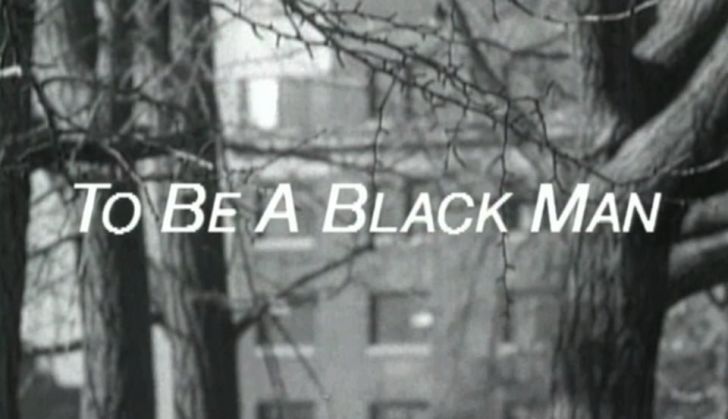A lot of my post on Substack have been obits or reflectons on performers I’ve admired, looking back on their legacy. It’s one of the things about getting older. You live a lot of your life looking back on things past.
So its fun to celebrate someone with a rich past that’s still vital and making moves. One of my favorite singers and most dedicated artist just turned fifty. In an era when R&B and soul are devalued, despite being the underpinning of so much contemporary music, Maxwell has remained true to those sounds while pushing his music into a new shapes and directions. By sticking to his artistic goals, and not chasing trends, Maxwell has built a huge fan base that still fills arenas and he uses his platform to support other performers who have stayed true to the essence of soul singing.
Much like his creative mentor Sade, Maxwell takes his time with his music, spreading out his albums releases and using the same core of collaborators so that his sound has an aesthetic unity. I have complained to him in the past about not being more prolific, but its worked for him, as both a recording artist and live performer. Longevity in popular music, where you can still sell hard tickets to fans, is an increasing rarity as the older generation of performers of the ‘70s and ‘80s age out of performing or pass away. Maxwell has maintained his status but never skimping on quality and staying true to himself, so he’ll around for many more years.
Below is a look back at his classic debut album and how I first met him.
“Welcome
(Anytime you want, I'll always be free)
Anytime you want some
(You're welcome babe, you're welcome to me)
Make yourself at home cause you're welcome
Welcome”
From “Welcome” the opening song on Urban Hang Suite
Released April 2, 1996 Maxwell’s ‘Urban Hang Suite’ was an instant landmark in the history of black popular music, connecting the dots between classic ‘70s soul music and the suave dance music of ‘90s New York City club culture. Moreover the album was a product of a “downtown” meets Brooklyn aesthetic that connected the multi-cultural dance music scene of Manhattan below Union Square with the bohemian spirit found in Brooklyn’s Fort Greene/Clinton neighborhoods, which were just over the Manhattan Bridge from the city.
Born in Brooklyn, product of Puerto Rican father and Haitian mother and raised in a religious family, Gerald Maxwell Rivera started writing songs on a Casio keyboard and began performing around New York at 19.
Maxwell, in the years before the album was released, worked at a bus boy at the Coffee Shop, a bar/restaurant across from Union Square, a place that advertised that it stayed open “23 hours a day,” making it a late night destination for the community of models, musicians, writers, artists, actors, designers and fly folks who’d come by after partying at clubs like the Palladium, Nells, Don Hills, Moomba, Roxy and the Tunnel. As an handsome young New York kid, Maxwell sampled the city’s vibrant club culture, while remaining committed to making music that had roots in vintage soul.
Any look back at ‘Urban Hang Suite’ is a consideration the making of the album and the era it emerged in. Maxwell was supported a stellar collection of soul music vets, including Sade’s Stuart Matthewman, who co-wrote and co-produced three songs, and Leon Ware, who’d collaborated with Marvin Gaye on his classic ‘I Want You’ album. The song Ware co-wrote, “Sumthin’ Sumthin’,” was a stone groove that still flows like butter. The album was also the beginning of Maxwell’s long creative relationship with Hod David, who co-wrote three songs on ‘UHS’ and would go on to be a producer all of the singer’s subsequent albums.
Teddy Riley’s new jack swing had dominated black radio into the ‘90s, while by the middle of the decade a rawer lyrical direction was being driven by R. Kelly and Jodeci. But ‘UHS’ is a product of a moment where other singer-songwriters with similar artistic inclinations (D’Angelo, Erykah Badu) were working at some the same studios (eg: Greenwich Village’s Electric Lady) to forge a new direction in R&B that would be called neo-soul. ‘Urban Hang Suite,’ along with D’Angelo’s ‘Brown Sugar’ and Badu’s ‘Baduizm,’ brought a more organic, progressive sound that challenged the status quo. Infact Maxwell’s debut album in fact sat on the shelf at Columbia Records for almost a year precisely because the label was unsure of its commercial prospects.
I first became aware of Maxwell through Matthewman. I’d written an essay in the Village Voice called ‘To Be A Black Man’ that had gotten great feedback, so much so that I decided to make it into a short film. I’d written a couple of movies (‘Strictly Business,’ ‘CB4’) and was finally interested in making the move into directing. Samuel L. Jackson agreed to read the piece and I approached Stuart about composing some music for the film. He introduced me to Maxwell who would on to record a haunting wordless melody behind Jackson’s vocals. The film went onto premiere at the Toronto Film Festival and stands as one of Maxwell’s earliest appearances. To celebrate his debut album I’ve included a link ‘To Be A Black Man’ and his classic performance of “This Woman’s Work” on MTV Unplugged just after ‘Urban Hang Suite’s release.
I also wanted to include, “Lake by the Ocean,” one of my favorite tracks from his ongoing ‘Black Summers Night’ trilogy of albums, which has another album to come.




